News & Media
Meet the Unisan making her mark on the world of science
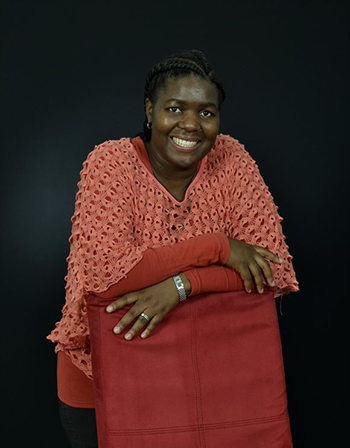
Recent Unisa graduate Dr Takalani Madima-Cele was one of 14 brilliant young women researchers awarded a research grant at the L’Oréal-UNESCO for Women in Science Awards in Nairobi, Kenya, on 7 December 2018.
Recent Unisa graduate, Dr Takalani Madima-Cele, was acknowledged as one of the exceptional young women scientists conducting research in sub-Saharan Africa at the L’Oréal-UNESCO for Women in Science Awards in Nairobi, Kenya, at the end of last year. Through this remarkable initiative, accomplished women researchers are recognised and rewarded for their outstanding contribution in the scientific field.
The 14 fellows - 12 doctoral and 2 post-doctoral - were drawn from five countries in sub-Saharan Africa (Ghana, Mauritius, Kenya, South Africa and Nigeria). They were selected for the scientific excellence of their work from more than 480 applicants by a jury of independent experts.
Despite the challenge of being a working wife and mother-of-toddlers, the sharp-witted Madima-Cele managed to excel and complete her doctoral studies while juggling her family and her professional responsibilities. Her modest character is true and purposeful, testifying to the virtue of a true Unisa alumnus who is making her mark on the world of science.
From childhood, Madima-Cele aspired to be a medical doctor and help communities despite her unprivileged background and her economic and class constraints. The driven and dedicated 35-year-old completed her BSc Chemistry undergraduate degree at the University of Cape Town, and her honours and master’s programmes at the University of the Western Cape. She was then a UNESCO-Unisa Chair in Nanoscience and Nanotechnology (U2ACN2)doctoral graduate.
The news team reached out to Dr Takalani Madima-Cele to discover more about her award journey and PhD experience.
What was your childhood like?
Growing up in Gondeni village in Limpopo was a challenge. We did not have access to resources such as career guidance, computers and the internet. However, I had a teacher who stood by me and instilled in me the love of mathematics and science at an early age. I knew from primary school that I wanted to be a medical doctor to make a difference in the community.
What makes you passionate about science?
The wonders of science engrossed me at a young age. I always found myself mixing things to find out what would emanate from the mixture and conducting small experiments at home. I love science first because it is challenging and feeds my sense of curiosity; the passion grew stronger through learning at Mbilwi Senior Secondary School because it is a science school. I also participated in science expos and science Olympiad competitions.
Also, I like science because it lets me develop scientific knowledge and theory about everything in my surroundings I may stumble across. I believe that science is in line with my purpose; equally I aim to use science to solve social problems in our continent and make a difference.
"The world needs science, and science needs women: nowhere is this more clearly illustrated than in African countries, which face significant challenges including climate change, access to energy or food security. Science and technology are key to addressing these challenges, and this will not be possible without women. Their talents and perspectives enrich relevant research." ~Alexandra Palt, Executive Vice President of the L’Oréal Foundation
Was it important for you to complete a doctoral degree at Unisa and why?
Yes, it was important for me to complete my PhD in Unisa. This university allowed me to work and study at the same time while I also took care of my family. It was not only convenient for me but also I had the privilege to be under Prof Malik Maaza’s U2ACN2 group, as this afforded me opportunities to collaborate with international partners.
How did you manage to juggle your part-time PhD studies, full-time job and family life?
It is quite difficult to juggle studies, work and family, but it teaches one to be creative and multi-task, in order to achieve great results in all spheres. I am a mother of two children (Ayama and Luminathi), both born during my PhD studies. I am blessed to have a wonderful husband (Dr H M Cele) who encouraged and supported me; he is also in the science field so he understands the demands of this subject. Proper planning and sticking to the plan kept me going. Not to forget my mother, who takes care of my children when I am away.
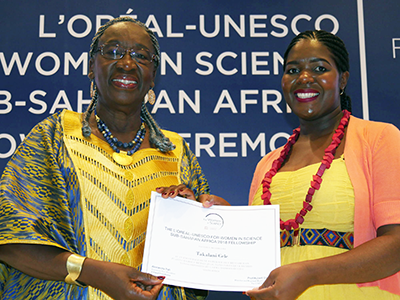
Unisa U2ACN2 fellow Dr Takalani Madima-Cele at the L’Oréal-UNESCO For Women in Science Awards last year.
What is your research all about?
My research focuses on the synthesis of platinum group metals nanoparticles and hybrid nano-composites by Gamma radiolysis/EISA for skin cancer treatment application. South Africa has the world’s largest reserves of manganese and platinum group metals. Most of these minerals are exported. This project aims to benefit from these minerals before export.
We are hoping to find a way to counteract the side-effects of the existing treatment methods by providing nanoparticles that will aid the drug-delivery to the targeted cancer cells. There are other applications of these nanoparticles, such as water treatment and photonics application, that, if explored, can have a great impact on our country.
What are you working on now?
I am continuing with my research, publishing my results and working towards the applications phase.
Apart from being a recipient of such a ground-breaking award, what other community involvements are you engaged in?
I am a tutor to Unisa science undergraduate students and also a mentor to few young students. This is a great opportunity as I get to advise young girls - who are hoping to get to where I am and subsequently pursue a career in science - to work hard and stay focused and determined in achieving their goals in the field.
What is your understanding of an African university shaping futures and how do you add value to that as a U2ACN2PhD student?
My understanding is that an African university plays a vital role in providing education to many of the citizens and enables one to study in one’s preferred environment and formulate essential collaborations to enable one to explore all necessary resources. As a U2ACN2 PhD student, I add value as I am working on a research intending to solve socio-economic problems in our continent. Also I am grateful for the IThemba LABS funding and a Unisa Experimental bursary.
What lessons have you learnt from your time in completing your PhD recently?
Hard work and perseverance yield great results.
What do you see as the biggest opportunity or challenge of being a recipient of the L’Oréal UNESCO Award for Women in Science?
I see this as a great opportunity to get funding to further my research activities. It is also a platform to meet with the other women in science, and share our challenges and success stories and be role models to young science students.
What does the award mean to you?
The award means a lot to me. It is a platform for me to go out there and serve as a role model to aspiring scientists, especially women scientists from disadvantaged backgrounds like me.
Follow the L'Oréal Foundation on Twitter @4WomeninScience
#FWIS #LOrealFoundation
*Interview by Lesego Ravhudzulo, Journalist, Department of Institutional Advancement
Publish date: 2019-02-14 00:00:00.0

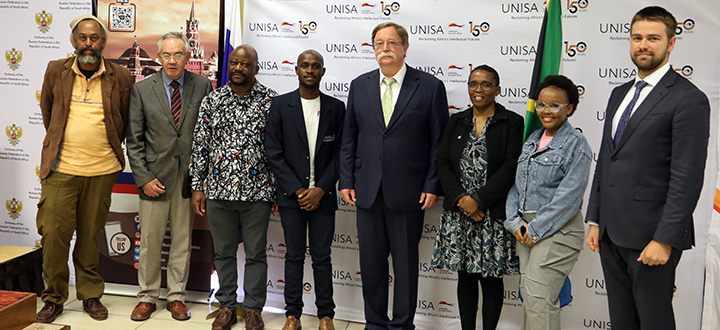 Unisa's student leadership engage with Russian ambassador
Unisa's student leadership engage with Russian ambassador
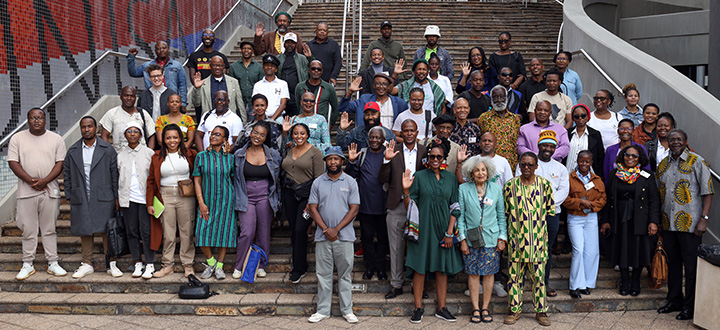 Re-igniting and re-imagining Pan Africanism, Afrocentricity and Afrofuturism in the 21st century
Re-igniting and re-imagining Pan Africanism, Afrocentricity and Afrofuturism in the 21st century
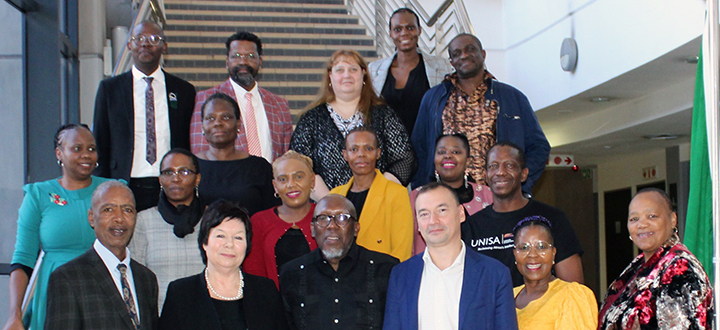 Unisa and Russian State University for the Humanities explore collaborative opportunities
Unisa and Russian State University for the Humanities explore collaborative opportunities
 Young Unisa science stars join elite Lindau Nobel Laureate group
Young Unisa science stars join elite Lindau Nobel Laureate group
 Education MEC addresses Unisa autism seminar
Education MEC addresses Unisa autism seminar